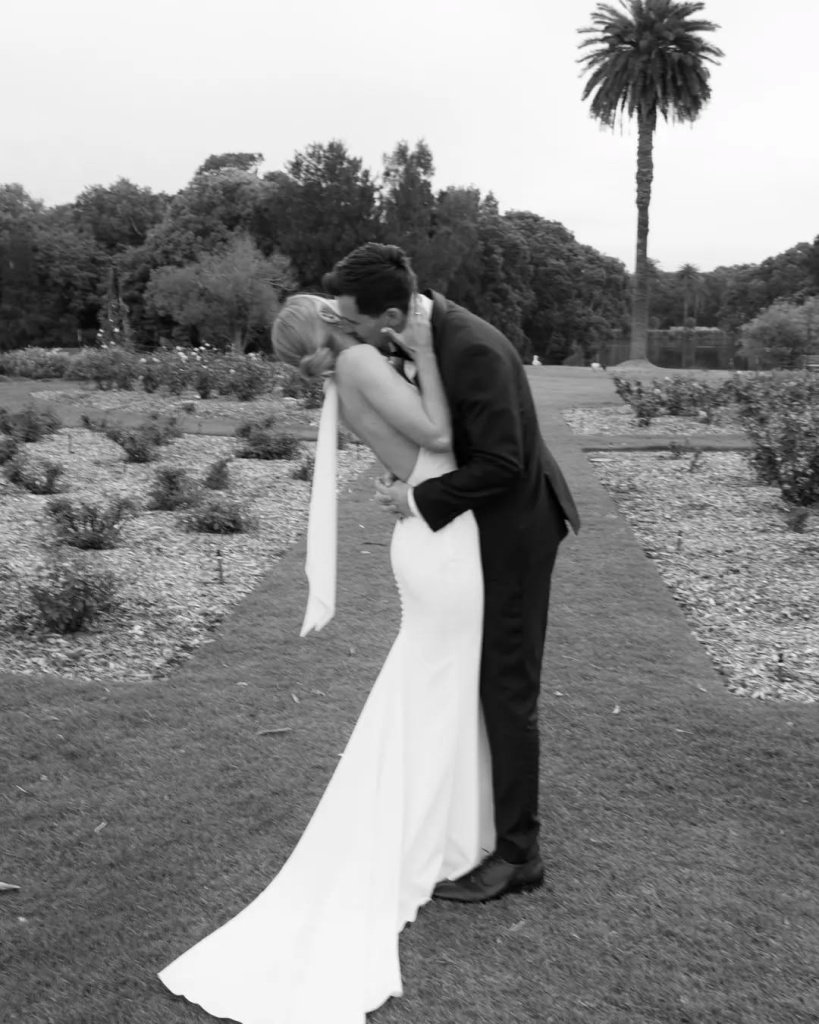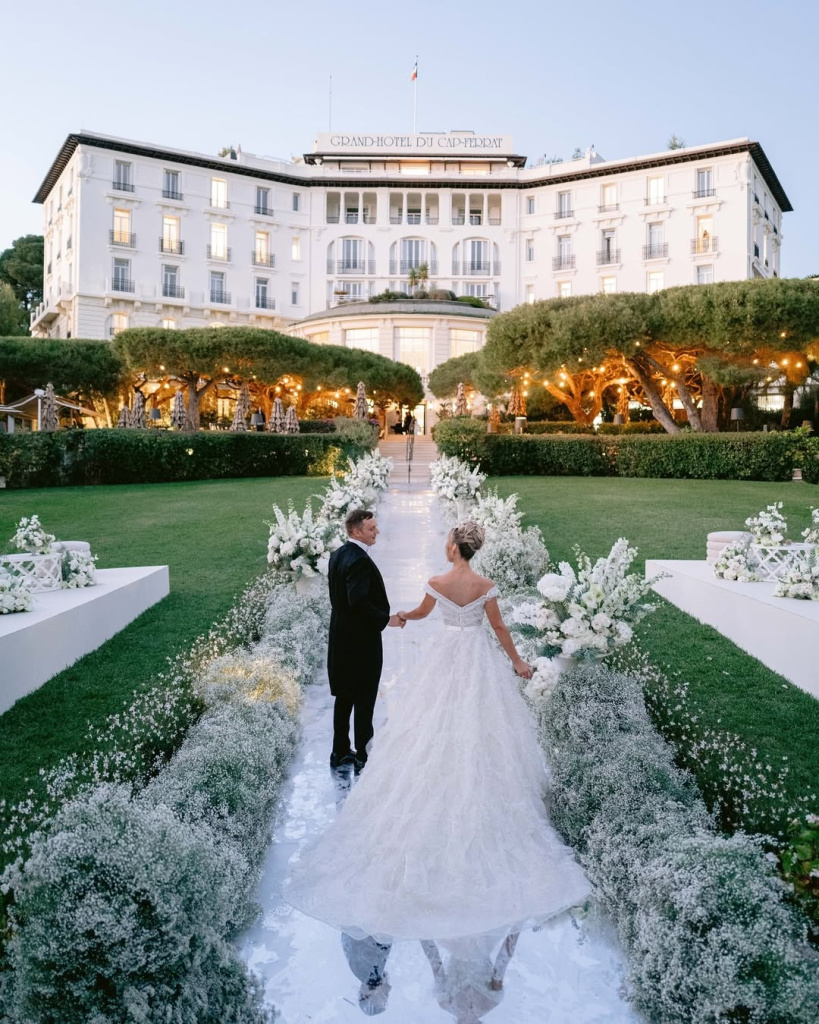Finding the Right Balance of Personal Space in Your Relationship
- Author: Natali Grace Levine
- Reading time: 7 min 20 sec
- Publication date: 11/05/2024
- Updated: 01/07/2025
- Signs You Might Need More Personal Space
- Common Misconceptions About Space in Relationships
- Setting Boundaries: Knowing What Works for You
- Communication Strategies: Navigating the Topic Without Conflict
- Emotional Self-Care: Strengthening Yourself to Strengthen Your Bond
- Self-Reflection: Finding the Balance That’s Right for You
In relationships, "personal space" refers to the physical, emotional, and mental boundaries that allow each partner to maintain their individuality. This could mean anything from spending time alone or with friends to pursuing separate hobbies and passions. As therapist Dr. Laura Markham puts it, “Personal space is essential for maintaining a sense of self, which in turn enriches the relationship by bringing in new perspectives and experiences.”
While personal space can enhance a relationship, too much space may feel like distance or even neglect. Striking this balance is crucial for a relationship to stay healthy and fulfilling, but the "right" amount varies based on personalities, relationship dynamics, and life circumstances.

Signs You Might Need More Personal Space


Recognizing when you need more personal space can sometimes be challenging, especially if you’re used to focusing on your partner’s needs. However, tuning into your own emotional cues and physical responses can help you identify when it's time to prioritize a bit more breathing room. Here are some common signs:
- Increased Irritability or Frustration: If small behaviors from your partner that once seemed endearing now feel frustrating or overwhelming, this might be your mind signaling that you need time alone to recharge and regain patience.
- Emotional Draining or Exhaustion: Feeling emotionally exhausted after spending time together could indicate that your personal energy reserves are depleted. This sensation might show up as a desire to retreat, a difficulty in engaging in deep conversations, or simply a sense of feeling “overwhelmed.”
- Loss of Identity or Hobbies: If you notice you’ve stopped engaging in the hobbies or interests you once enjoyed, it could be a sign that you’re dedicating too much time to the relationship and not enough to individual pursuits. Maintaining personal interests helps you stay connected to who you are outside of the relationship.
- Need for Solitude or Quiet Moments: Often, people experience a natural craving for solitude to reflect, recharge, or process thoughts independently. This need might manifest as a desire for solo activities like taking a walk, enjoying a solo movie night, or simply being in a separate room without interruption.
- Desire for More Independence in Decision-Making: You might feel that you’re leaning too heavily on your partner's input, even for minor decisions, and begin to crave more autonomy. This shift is normal and can be healthy, as independence fosters confidence and self-reliance within the relationship.
- Pulling Away Physically or Emotionally: If you find yourself hesitating to share feelings, and thoughts, or spend time together, it could be a sign that you’re craving a bit more personal space. This might look like needing more time to process emotions alone before discussing them with your partner.
Identifying these signs isn’t about creating distance but about finding a healthy balance that allows both partners to be the best version of themselves. Embracing personal space with intention can lead to a stronger, more resilient relationship that values individuality as much as partnership.


Common Misconceptions About Space in Relationships
When it comes to personal space, misconceptions often arise, sometimes making partners hesitant to ask for what they need. Addressing these misunderstandings can help both you and your partner see space as a healthy, even essential, component of a thriving relationship.
Needing Space Means There’s a Problem
A common misconception is that asking for space signals trouble in the relationship. On the contrary, needing time alone is often an act of self-care that enables partners to recharge and re-engage. According to relationship expert Dr. John Gottman, “When partners are able to spend time apart, they return to the relationship feeling rejuvenated, bringing renewed energy and positivity.” Space allows each person to reconnect with themselves, ultimately enhancing the bond between them.
Personal Space Is Selfish or Unloving
Some people feel guilty for wanting space, thinking it reflects negatively on their love for their partner. However, taking time for oneself is a form of self-love and personal growth that, when balanced, strengthens the relationship. In reality, prioritizing individual needs can lead to greater emotional resilience and empathy, enriching the partnership with fresh insights and perspectives.
Being Close Means Always Being Together
Many assume that healthy relationships require near-constant togetherness, yet studies show that couples who maintain individuality within the relationship often have stronger, more resilient connections. True closeness is about quality over quantity—being together when it counts rather than all the time. Personal space allows for deeper, more meaningful interactions that create a sense of closeness without the need for constant presence.
Personal Space Leads to Growing Apart
Some worry that time apart could create distance or weaken intimacy. However, personal space, when handled with care, can actually prevent emotional burnout. By giving each other room to explore separate interests or decompress, partners can stay connected without becoming enmeshed. When time apart is balanced with open communication and regular reconnection, the relationship benefits from both independence and intimacy.
Space Should Be the Same for Both Partners
Different people have different needs, and the amount of space required may vary between partners. One partner might crave more alone time than the other, and that’s okay. Understanding and respecting these differences allows both partners to feel seen and valued for who they are, fostering a sense of security that strengthens the bond.


Setting Boundaries: Knowing What Works for You
Boundaries are the foundation of personal space. Each person has different needs, so it's essential to identify what works for you.
- Identify Your Needs: Reflect on the type of space that makes you feel most balanced. For some, it's physical—taking a walk alone; for others, it's emotional—journaling to process thoughts independently.
- Establish Routines: Creating routines that honor personal space can make it easier to maintain these boundaries. This could mean scheduling solo activities, having dedicated time for self-care, or keeping hobbies separate.
- Balance Compromise and Assertion: Boundaries don’t mean closing off. Instead, they’re a way to nurture a respectful partnership. For example, if your partner enjoys social gatherings, but you need downtime, agree to attend some events together while setting aside time for yourself.
Communication Strategies: Navigating the Topic Without Conflict
Discussing personal space needs can be sensitive, especially if one partner interprets it as a desire to pull away. However, approaching the topic with empathy and clarity can help prevent misunderstandings and reinforce trust. Here are some thoughtful strategies for bringing up personal space without conflict.
Use “I” Statements
Framing your need for space in terms of your feelings and needs rather than pointing to your partner’s behavior helps avoid defensiveness. For example, say, “I feel more balanced when I have some alone time each week,” rather than, “You’re around all the time.” By focusing on your perspective, you’re encouraging understanding without placing blame.
Acknowledge Shared Values and Reassure
Begin the conversation by reaffirming your commitment to the relationship. You might say, “I love spending time with you, and I think we both thrive when we can also enjoy time on our own.” This reassurance shows that your need for space doesn’t reflect dissatisfaction but is simply a way to bring your best self into the partnership.
Listen to Their Perspective and Be Open to Compromise
Creating space is a two-way conversation. Encourage your partner to share their feelings and needs as well. They might also want some personal time or have concerns about balancing closeness and space. Being open to hearing their perspective and finding solutions together strengthens the mutual respect and trust in the relationship.
Choose the Right Time and Setting
Timing is crucial when bringing up sensitive topics. Choose a calm, relaxed time to discuss personal space, rather than during or after an argument. This makes the conversation feel less reactive and more intentional, creating a safe space for open dialogue.
Check In Regularly
Space and closeness are dynamic needs that can shift over time. Scheduling regular check-ins about your relationship—monthly or biweekly—can help ensure that both partners feel their needs are met. During these check-ins, revisit the topic of personal space, gauge how each of you feels about the balance, and adjust accordingly. This proactive approach shows commitment to both the relationship’s health and each other’s happiness.
Use Positive Language to Frame Space as a Strength
Reframe the concept of personal space as a strength for the relationship. Words like "recharge," "refresh," and "renew" can help convey that personal space isn’t a lack but rather an investment in the partnership. This positive framing helps the conversation feel collaborative rather than like a request to pull away.


Emotional Self-Care: Strengthening Yourself to Strengthen Your Bond
Emotional self-care goes beyond alone time—it’s about investing in activities that replenish your spirit, allowing you to bring positive energy back to the relationship.
- Engage in Hobbies: Rediscover activities that bring you joy, whether it’s reading, painting, or hiking. These experiences bring excitement and freshness to the relationship as you share new ideas and passions with your partner.
- Prioritize Mental Health: Activities like meditation, journaling, and therapy can deepen self-awareness and improve emotional regulation, making it easier to communicate needs calmly.
- Cultivate Friendships: Building a supportive network outside of your relationship can relieve pressure from your partner to fulfill all emotional needs and provide additional outlets for connection and growth.
Self-Reflection: Finding the Balance That’s Right for You
Taking time to reflect on what personal space means to you can clarify your needs and how to communicate them effectively. Here are some introspective questions to help guide your understanding of the right balance for you and your partner:
- What kind of activities make me feel recharged and fulfilled?
- How much time alone do I need each week to feel my best?
- What emotions come up when I spend time away from my partner? Do I feel guilty, relaxed, or something else?
- How comfortable am I with my partner spending time alone or with others?
- Do I sometimes avoid asking for space? If so, what am I worried about?
- How can I support my partner’s need for space, even if it’s different from mine?
- What boundaries would make me feel safe and respected in the relationship?
- Do I feel able to express my need for space openly, and if not, what might help?
- In what ways do I want to grow individually, and how can I do that while staying connected?
- What routines or habits could help maintain this balance in our relationship?
- How does having personal space contribute to my happiness and well-being?
- Are there any activities or interests I miss from before the relationship that I’d like to reintroduce?
- What signs should I watch for that indicate I need more (or less) personal space?
- How can I work with my partner to ensure both our needs are met, even as they evolve?
- What role does communication play in keeping our relationship balanced, and how can I improve it?
These questions encourage self-awareness and intentionality in creating a balanced relationship. By taking time to reflect on your responses, you’re better equipped to identify, communicate, and respect each partner's unique needs, ultimately fostering a relationship where closeness and individuality coexist harmoniously.














